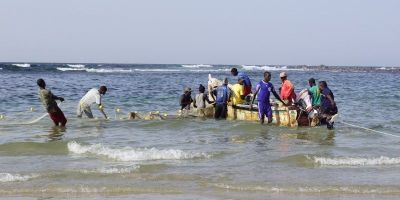A sustainable approach to research

Sustainability is the ability to maintain an activity without harm to, or depletion of, environmental, social or economic resources – and it’s something the University of Leeds takes seriously.
Leeds has one of the largest academic groups of sustainability experts in the world and an impressive suite of postgraduate and undergraduate sustainability degrees cutting across several disciplines. But it goes much further than that – sustainability is a thread that runs through all of the University’s activities, integrating research, training, teaching, work experience, external partnerships and the administration and management of the campus.
This holistic approach is what attracted Dr Dorcas Otieno from Kenyatta University to invite Leeds – and specifically Dr Anne Tallontire, from the Sustainability Research Institute – to be the UK partner in her UNESCO Chair programme, looking at higher education development for a green economy and sustainability (HEDGES).
The connection was made thanks to a Leeds graduate, who had been taught by Dr Tallontire as part of her MSc in Sustainability and Business, and so had seen first-hand how Leeds gives students practical experience of putting sustainability principles into practice. That student also happened to be Dr Otieno’s daughter, Lorraine.
“I received a message from Lorraine via LinkedIn, saying that her mother was applying for a UNESCO Chair, was looking for a UK partner and would I be interested,” recalls Dr Tallontire. “Dorcas and I made contact and it was obviously a perfect fit as Dorcas was looking at applying a similar approach at Kenyatta as we had in Leeds.”
The HEDGES programme has four main aims: establish an interdisciplinary sustainability research institute; ‘green the campus’ by bringing sustainability principles into Kenyatta University’s governance and management; develop the student curriculum, staff training and vocational courses to promote skills development for a green economy; and develop partnerships that can promote the sustainability agenda and a green economy more widely.
“Employers in Kenya make very similar complaints to employers in the UK – that universities aren’t preparing graduates for the world of work, in terms of key skills such as problem solving, project management, leadership and team working,” says Dr Tallontire. “Many graduates are missing out on vocational skills that could really improve their employability. One of the aims of the HEDGES project that we’ll be working on is to develop these skills for Kenyatta students in the context of the green economy, with a particular focus on agriculture and renewable energy.”
Working in partnership
It won’t be a one-way transfer of knowledge, but rather an equal partnership that Dr Tallontire hopes will bear fruit in many ways for both parties. Dr Otieno’s expertise is in education for sustainable development (ESD) and she has been involved in both international and national initiatives in Kenya to develop and promote ESD policies and the work of the Kenya Green Universities Network.
A number of joint workshops are already planned, to enable Leeds researchers to showcase how Leeds uses the University campus as a ‘living lab’ where students and academics carry out sustainability-related projects, such as biodiversity audits or community engagement. Kenyatta and Leeds academics will also work together to audit the Kenyatta curriculum and look at ways that sustainability skills development can be incorporated, both into sustainability-related degrees and wider provision. At Leeds, for example, any undergraduate can broaden their knowledge by taking a ‘discovery module’ outside their core degree subject and many of these include sustainability knowledge and skills.
There are also plans to bring together early career researchers from both institutions, to develop collaborative research project proposals for submission to Kenyan funding bodies or relevant UK grant bodies, such as the Newton Fund.
Ensuring impact through co-production
As well as creating partnerships like this between universities to develop research ideas, Dr Tallontire believes passionately in co-production of research with stakeholders beyond academia, as the best way to ensure research has impact.
Co-production is the guiding principle of all of her research, most recently a pump-priming project looking at resilience for smallholders in agricultural supply chains. This will involve working with farmers’ organisations in East and West Africa to develop a research proposal ready to submit to funders.
Dr Tallontire explains: “In the traditional approach to research with a partner, the research agenda and the funding bid might be done jointly, but then the academics would define the project, collect and analyse the data, then pass the findings on to the partner and leave them to use the findings if they could.
“In co-produced research, the academics will still probably collect the data, but every other stage is carried out together, ensuring research is designed to be of most benefit to users and the outcomes can be more easily put into practice. When bringing different parties together that work in similar fields, I’ve always found we will have more in common in terms of skills and knowledge than divides us. So ultimately, it’s an approach that brings maximum benefit to everyone.”




